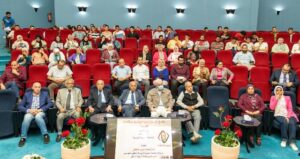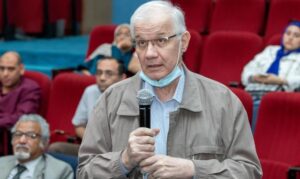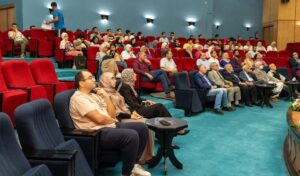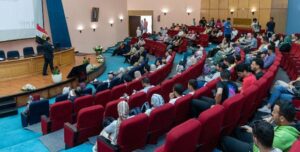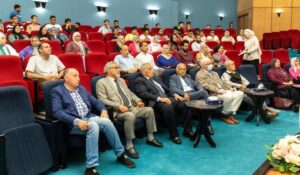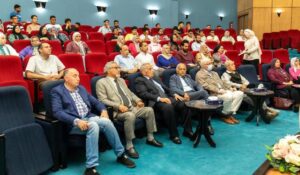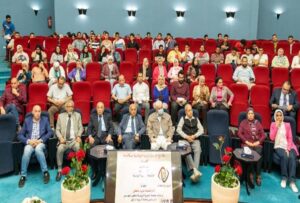The Egyptian Russian University Organizes an Awareness Seminar on the National Anti-Corruption Strategy..
Dr. Sherif Fakhry Mohamed Abdel-Naby, President of the Egyptian Russian University, announced that in order to enhance the sense of belonging among students and spread awareness and the culture of combating corruption, the university held a seminar “on the Features of the National Anti-Corruption Strategy” to inform students, faculty members, and employees on campus about the importance of fighting all types of corruption and to review the methodology of the Egyptian national strategy, its objectives, achievements, and aspirations that the state seeks to achieve in order to attain higher rates in the areas of sustainable development and provide a safe environment for foreign and local investment. He noted that the seminar was held under the auspices of Dr. Mohamed Kamal El-Sayed Mustafa, Chairman of the University’s Board of Trustees.
In the same context, Dr. Shehata Gharib, ERU President consultant for Institutional Development, presented the features of the National Anti-Corruption Strategy in four axes. In the “first” axis, he addressed the international and national stance on combating corruption, pointing out that the United Nations Convention against Corruption, which was adopted by the “United Nations General Assembly” on October 31, 2003, was joined by Egypt in 2004. He clarified the Egyptian position and what Article 218 of the 2014 Constitution stipulated regarding the Egyptian state’s commitment to combating corruption through its regulatory bodies and in accordance with a national strategy to combat corruption.
The consultant for Institutional Development also discussed in the “second, third, and fourth” axes the features of the first edition of the National Anti-Corruption Strategy (2014 – 2018), the features of the second edition (2019 – 2022), and the features of the third edition (2023/2030), emphasizing that the Egyptian state has made a great effort in the field of combating corruption, and that the “Administrative Control Authority” has adopted monitoring the implementation of the National Anti-Corruption Strategy to identify strengths, weaknesses, opportunities, and challenges in order to effectively confront corruption and to have an efficient administrative apparatus capable of providing basic services to citizens, as well as to create a suitable environment that encourages attracting investment and achieving sustainable development in accordance with the “Egypt Vision 2030.”
Dr. Shehata Gharib stated that this seminar comes within the framework of ERU keenness to raise awareness among its students and spread the culture of confronting corruption, and for them to play a prominent role in this confrontation. He pointed out that the most important causes of corruption in society are:
– Decline in values and behavioral habits.
– Nepotism and favoritism.
– Lack of social responsibility.
– Social acceptance of petty corruption.
– Weak role of the media.
– Absence of participation by civil society institutions.
– Citizens’ reluctance to report incidents of corruption.
The seminar was attended by deans of colleges, a group of faculty members, and university students. It was followed by an open dialogue in which the attendees participated, concluding the necessity for individuals to play a prominent role in performing their national duty to confront all forms and manifestations of corruption
